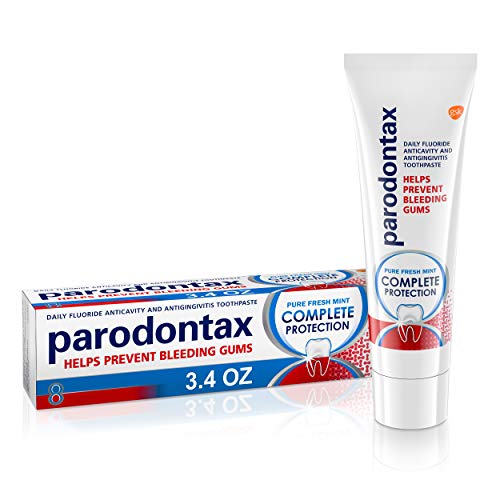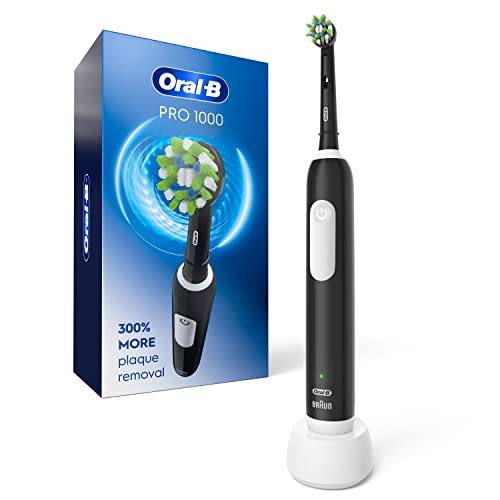Dear readers, we understand the struggles and concerns that come with maintaining healthy gums. We have all experienced that dreaded feeling of seeing blood in the sink while brushing our teeth. It can be frustrating and worrisome, but rest assured, we are here to guide you towards a solution. In this blog post, we will delve into the world of toothpaste for gum health, shedding light on its significance and the potential benefits it can offer. We empathize with your desire to improve your gum health, and we are excited to share with you the factors to consider when selecting the right toothpaste for your needs. So, let’s embark on this journey together, as we uncover the secrets to achieving healthier gums.
Improving Oral Hygiene for Stronger Gums
Why is gum health important?
Gum health is often overlooked when it comes to oral hygiene, but it plays a crucial role in maintaining overall oral health. Neglecting gum health can lead to a wide range of problems, from bad breath to tooth loss. In this blog section, we will delve into the importance of gum health and highlight the common gum problems that can arise if it is neglected.
The Role of Healthy Gums
Healthy gums serve as a protective barrier for the teeth, providing support and stability. They also help to keep the teeth firmly in place and protect the underlying bone. Here are some key reasons why gum health is important:
- Preventing Gum Disease: Gum disease, also known as periodontal disease, is a common oral health condition that affects the gums and the structures that support the teeth. Maintaining good gum health is crucial in preventing gum disease.
- Avoiding Bad Breath: Poor gum health can contribute to bad breath. Bacteria thrive in the mouth, and if left unchecked, they can cause infections and produce foul-smelling gases.
- Preserving Natural Teeth: Gum disease is the leading cause of tooth loss in adults. By taking care of your gums, you can lower your risk of tooth loss and preserve your natural teeth for longer.
- Protecting Overall Health: Research has shown a link between gum disease and various systemic diseases, including heart disease, diabetes, and respiratory infections. By maintaining good gum health, you can help reduce the risk of developing these conditions.
Common Gum Problems
Neglecting gum health can lead to a variety of gum problems, some of which can significantly impact your overall oral health. Here are some common gum issues that can arise if gum health is neglected:
- Gingivitis: Gingivitis is the early stage of gum disease and is characterized by red, swollen, and bleeding gums. It is reversible with proper oral hygiene and professional treatment.
- Periodontitis: If left untreated, gingivitis can progress to periodontitis, a more advanced stage of gum disease. Periodontitis can cause gum recession, bone loss, and ultimately, tooth loss.
- Gum Recession: Gum recession refers to the progressive loss of gum tissue, exposing the tooth roots. It can lead to tooth sensitivity, root decay, and aesthetic concerns.
- Gum Infections: Poor gum health can make the gums susceptible to infections such as abscesses, which can be painful and require immediate treatment.
Tips for Maintaining Good Gum Health
To maintain good gum health, follow these simple tips:
- Brush your teeth at least twice a day, using a soft-bristle toothbrush and fluoride toothpaste.
- Floss daily to remove plaque and debris from between the teeth and along the gumline.
- Rinse with an antibacterial mouthwash to help reduce bacteria in the mouth.
- Eat a balanced diet rich in fruits, vegetables, and whole grains, and limit sugary snacks and beverages.
- Visit your dentist regularly for professional cleanings and check-ups.
By incorporating these habits into your oral hygiene routine, you can improve your gum health and reduce the risk of gum problems.
In conclusion, maintaining good gum health is essential for overall oral health. It helps prevent gum disease, bad breath, tooth loss, and protects your overall health. By taking care of your gums through proper oral hygiene and regular dental visits, you can enjoy a healthy smile for years to come.
What to look for in toothpaste for gum health
Taking care of your gums is just as important as taking care of your teeth. Gum problems can lead to discomfort, pain, and even tooth loss if left untreated. One of the easiest ways to maintain gum health is by using the right toothpaste. In this article, we will provide you with a comprehensive guide on the key ingredients to look for in toothpaste that promotes gum health. We will explain how these ingredients work to combat gum problems and maintain gum health.
1. Fluoride
Key Points:
- Helps prevent tooth decay and gum disease
- Strengthens tooth enamel
- Reduces the risk of cavities
Fluoride is a mineral that plays a vital role in protecting your teeth and gums. It helps prevent tooth decay by strengthening the tooth enamel, making it more resistant to acid attacks from bacteria and food. Fluoride also reduces the risk of cavities and gum disease by inhibiting the growth of harmful bacteria in the mouth. Look for toothpaste that contains fluoride to ensure optimal gum health.
2. Antibacterial Agents
Key Points:
- Fight against bacteria that cause gum disease
- Reduce inflammation and bleeding
Gum disease is primarily caused by the buildup of plaque, which is a sticky film of bacteria that forms on the teeth and gums. Toothpaste containing antibacterial agents such as triclosan or chlorhexidine can help combat these harmful bacteria, reducing the risk of gum disease development. These agents also help reduce inflammation and bleeding in the gums, promoting healthier gum tissue.
3. Antiseptic Agents
Key Points:
- Kill bacteria and fight gum infections
- Help alleviate symptoms of gum disease
If you are already suffering from gum disease, toothpaste with antiseptic agents can provide additional benefits. These agents, such as essential oils like tea tree oil or thymol, help kill bacteria and fight gum infections. Using toothpaste with antiseptic properties can alleviate symptoms of gum disease, such as swollen or bleeding gums, and promote healing.
4. Tartar Control
Key Points:
- Prevent the buildup of tartar
- Maintain gum health by reducing gum irritation
Tartar, also known as dental calculus, is a hardened form of plaque that cannot be removed by brushing alone. It can irritate the gums, leading to gum inflammation and gum disease. Look for toothpaste that contains ingredients like pyrophosphates or zinc citrate, which help prevent the buildup of tartar. By keeping tartar at bay, these toothpastes contribute to maintaining gum health and reducing gum irritation.
5. Sensitivity Relief
Key Points:
- Soothe sensitive gums
- Reduce discomfort and pain associated with gum problems
If you have sensitive gums, using toothpaste specifically designed for sensitivity relief can make a big difference. These toothpastes contain ingredients like potassium nitrate or strontium chloride, which help soothe sensitive gums and reduce discomfort and pain. By addressing sensitivity, these toothpastes allow for better overall gum health.
Remember to consult with your dentist or dental professional to determine the most suitable toothpaste for your specific gum health needs. By choosing toothpaste with these key ingredients, you can effectively combat gum problems and maintain optimal gum health.
So, make sure to prioritize your gum health by selecting toothpaste that contains fluoride, antibacterial agents, antiseptic agents, tartar control ingredients, and sensitivity relief components. Your gums will thank you for it!
Different types of toothpaste for gum health
When it comes to maintaining good oral hygiene, brushing your teeth is just as important as flossing. But did you know that using the right toothpaste can also play a crucial role in promoting gum health? In this blog section, we will explore the various types of toothpaste specifically formulated for gum health. We will discuss their specific benefits and considerations to help you make an informed decision. Let’s dive in!
1. Antibacterial Toothpaste
- Contains ingredients like triclosan or stannous fluoride that help kill bacteria in the mouth.
- Reduces the risk of gum inflammation and gum disease.
- Provides an extra layer of protection by fighting bacteria that can cause plaque buildup.
- Ideal for those prone to gum infections or with a history of gum disease.
2. Desensitizing Toothpaste
- Designed for individuals with sensitive teeth and gums.
- Contains compounds like potassium nitrate or strontium chloride that help alleviate tooth sensitivity.
- Provides a protective barrier that shields exposed tooth roots and reduces discomfort.
- Suitable for those experiencing gum recession or enamel erosion.
3. Natural Toothpaste
- Formulated with natural ingredients like aloe vera, tea tree oil, or chamomile extract.
- Free of harsh chemicals, artificial flavors, and dyes.
- Helps maintain gum health without any potential side effects.
- Suitable for individuals looking for a more gentle and eco-friendly option.
4. Whitening Toothpaste
- Helps remove surface stains and restore the natural whiteness of teeth.
- Can contain mild abrasives or chemical agents like hydrogen peroxide.
- Offers gum health benefits by removing plaque and preventing tartar buildup.
- Ideal for individuals wanting to maintain gum health while achieving a brighter smile.
5. Tartar Control Toothpaste
- Contains ingredients like pyrophosphates or zinc citrate that help prevent tartar formation.
- Reduces the risk of gum disease by keeping plaque buildup under control.
- Helps maintain a clean and healthy gumline.
- Recommended for individuals prone to tartar buildup or with a history of gum problems.
Considerations
- Fluoride content: Opt for toothpaste that contains fluoride to strengthen tooth enamel and prevent cavities.
- Personal preferences: Consider factors like taste, texture, and consistency to find a toothpaste that suits your individual needs.
- Consult your dentist: If you have specific gum health concerns or are unsure which toothpaste is best for you, consult your dentist for personalized advice.
Remember, regular brushing with the right toothpaste can significantly contribute to gum health. Choose a toothpaste that aligns with your specific needs and preferences. Your gums will thank you for it!
*Please note that the information provided in this blog section is for informational purposes only and should not replace professional dental advice.
Tips for Maintaining Gum Health
Taking care of your gums is just as important as taking care of your teeth. Healthy gums not only contribute to a bright and beautiful smile, but they also play a crucial role in maintaining overall oral health. In this blog post, we will share practical tips and habits that can help you maintain good gum health in addition to using toothpaste. Let’s dive in!
Proper Brushing Techniques
Using the right brushing technique can make a significant difference in keeping your gums healthy. Here are some tips to keep in mind:
- Hold your toothbrush at a 45-degree angle towards your gum line.
- Use gentle, circular motions to brush both your teeth and gums.
- Brush for at least two minutes, twice a day.
- Don’t forget to brush your tongue to remove bacteria that can contribute to gum disease.
Regular Dental Check-ups
Regular dental check-ups are essential for maintaining gum health. Your dentist can identify early signs of gum disease and provide necessary treatments to prevent further complications. Make sure to schedule a dental visit every six months to keep your gums in top shape.
Flossing and Interdental Cleaning
Flossing and interdental cleaning are crucial for removing plaque and food particles from between your teeth and along the gum line. Here’s how you can incorporate these habits into your oral care routine:
- Floss at least once a day before brushing your teeth.
- Consider using interdental brushes or water flossers for more effective cleaning.
- Take your time and be gentle to avoid damaging your gums.
Healthy Diet and Lifestyle Choices
Maintaining a healthy diet and making lifestyle choices that promote gum health can greatly benefit your oral health. Here are some key points to consider:
- Limit sugary and acidic foods and drinks, which can contribute to gum inflammation.
- Increase your intake of fruits, vegetables, and foods rich in vitamins and minerals.
- Quit smoking or using tobacco products, as they are major contributors to gum disease.
Stress Management
Believe it or not, stress can negatively impact your gum health. Chronic stress weakens the immune system, making you more susceptible to gum disease. Consider incorporating stress management techniques into your daily routine, such as meditation, exercise, or hobbies that help you relax.
Benefits of Good Gum Health
Maintaining good gum health offers several benefits, including:
- Reduced risk of gum disease, which can lead to tooth loss.
- Fresher breath and improved overall oral hygiene.
- Lower risk of systemic diseases, as gum disease has been linked to conditions like heart disease and diabetes.
By following these tips and incorporating them into your daily routine, you can greatly improve and maintain the health of your gums. Remember, prevention is key, so start taking care of your gums today for a healthier smile tomorrow!
Disclaimer: This blog post is for informational purposes only and should not substitute professional dental advice. Always consult with your dentist or oral health professional for personalized guidance regarding your gum health.
[Image Source](insert link to image source)
[References](insert references, if any)
The Importance of Maintaining Strong and Healthy Gums
In conclusion, we have emphasized the significance of gum health and the crucial role that toothpaste plays in preserving it. After considering all the factors we’ve discussed, we recommend selecting a toothpaste that includes the essential ingredients for gum health. And don’t forget, it’s always a good idea to consult your dentist for personalized advice. Take care of your gums, they deserve it!





















